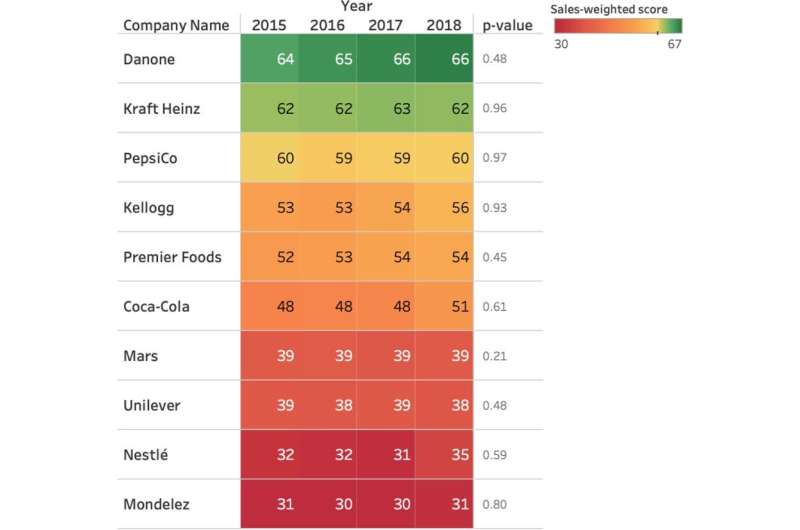
UK policies that set targets for reductions in salt, sugar and calories have not led to overall improvements in the nutritional value of food products. Research published in the open access journal PLOS ONE evaluates foods produced by the top ten food and beverage companies over a four year period and recommends further policy action be taken to support consumers to eat more healthily.
Poor diet is associated with chronic diseases and complications for individuals and leads to a substantial burden on health systems. Public Health England (PHE) has introduced voluntary reformulation targets focused on salt, sugar and calories to encourage change by manufacturers. Dr. Lauren Bandy and colleagues at the University of Oxford’s Nuffield Department of Population Health wanted to assess how the nutritional quality of products changed over time. They identified the top ten UK food and drink manufacturers and their brands and used an established nutrient profile model to look at the nutrient composition data for each item for four consecutive years—2015, 16, 17 and 18.
They found no change in the nutrient profiling score of products over time, though one company, Kelloggs, showed a small overall improvement, driven by reducing sugar in two products: Coco-pops and Special K. There was a small increase in the number of products classified as healthy: 46 percent in 2015 to 47 percent in 2018, and an increase in sales that were considered healthy: 44 percent in 2015 to 51 percent in 2018. This is likely because of reductions in the sugar content of some soft drinks, following an industry levy introduced in 2018. Of the top five brands sold by each of the ten companies only six improved their nutritional score by 20 percent or more.
Dr. Lauren Bandy of the University of Oxford’s Nuffield Department of Population Health says: “Our study shows it is possible to monitor the overall healthiness of company product portfolios and chart changes over time. We saw little evidence that the recommended current targets have made a significant difference and we believe that without more policy action and a transparent monitoring and evaluation system, it is unlikely there will be meaningful change.”
Source: Read Full Article
